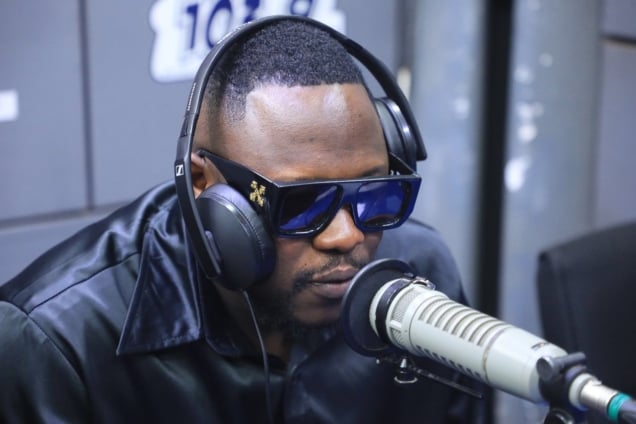Medikal’s social media post reflects a broader sentiment of disillusionment with the outgoing NPP government, particularly among the youth, and a cautious hope for change under the anticipated leadership of John Dramani Mahama. His personal experience of arrest and imprisonment, which he attributes to an abuse of power by the NPP, serves as a microcosm of the perceived injustices and heavy-handedness that have characterized the current administration’s tenure. Medikal’s plea to Mahama is not one of blind faith, but rather a conditional expectation of tangible improvements, specifically focusing on youth development and a fairer application of justice. This sentiment likely resonates with many young Ghanaians who have felt marginalized or unfairly targeted during the NPP’s time in power.
The rapper’s arrest for brandishing a firearm on social media exemplifies the perceived disproportionate response by authorities to what some might consider a relatively minor offense. While gun control and public safety are legitimate concerns, the swiftness and severity of the reaction in Medikal’s case raised questions about the motivations behind the arrest. His claim that his lawyers were met with the explanation that it was “an order from above” suggests a lack of transparency and due process, fueling suspicions of politically motivated persecution. This perception of selective enforcement erodes public trust in the justice system and reinforces the narrative of an administration wielding its power arbitrarily.
The rapper’s pointed criticism of the NPP and his call for change echo the broader public discourse surrounding the election. The NPP’s economic policies, while boasting some successes, have been criticized for failing to adequately address issues of unemployment and inequality, particularly among the youth. This has contributed to a sense of frustration and disenfranchisement, leading many young people to seek alternative leadership. Mahama’s campaign promises to prioritize youth development and job creation have resonated with this demographic, offering a glimmer of hope for a more prosperous future.
Medikal’s cautious optimism towards Mahama’s impending presidency is evident in his statement, “I do not trust him but rather believe in him.” This reflects a pragmatic understanding that political promises are not always fulfilled and that real change requires sustained effort and accountability. It also underscores the deep-seated skepticism that many Ghanaians harbor towards politicians, regardless of their party affiliation. The demand for “drastic” change underscores the urgency of the situation and the need for Mahama to quickly address the concerns of the electorate, particularly the youth who have borne the brunt of economic hardship and perceived political marginalization.
By invoking his friend’s son, Sharaf, Medikal personalizes his plea, framing it in terms of the future generation. This appeal transcends political rhetoric and speaks to the fundamental human desire for a better future for one’s children. It highlights the long-term implications of the current political climate and the need for leaders to prioritize the well-being of the next generation. This resonates with the anxieties of many parents and young people who fear that their future prospects are being jeopardized by the current socio-economic conditions and political uncertainties.
Medikal’s post, while seemingly focused on his personal experience, serves as a powerful commentary on the broader political landscape of Ghana. It captures the disillusionment with the outgoing administration, the cautious hope for change under new leadership, and the urgent need for policies that prioritize youth development and equitable justice. The rapper’s call for drastic change is a reflection of the collective desire for a more just and prosperous future for all Ghanaians, particularly the youth who represent the nation’s future. The incoming administration faces the daunting task of rebuilding trust, addressing economic inequalities, and fostering a more inclusive and just society. The success of Mahama’s presidency will depend, in large part, on his ability to deliver on these promises and to demonstrate a genuine commitment to the well-being of all Ghanaians, regardless of their political affiliations.














